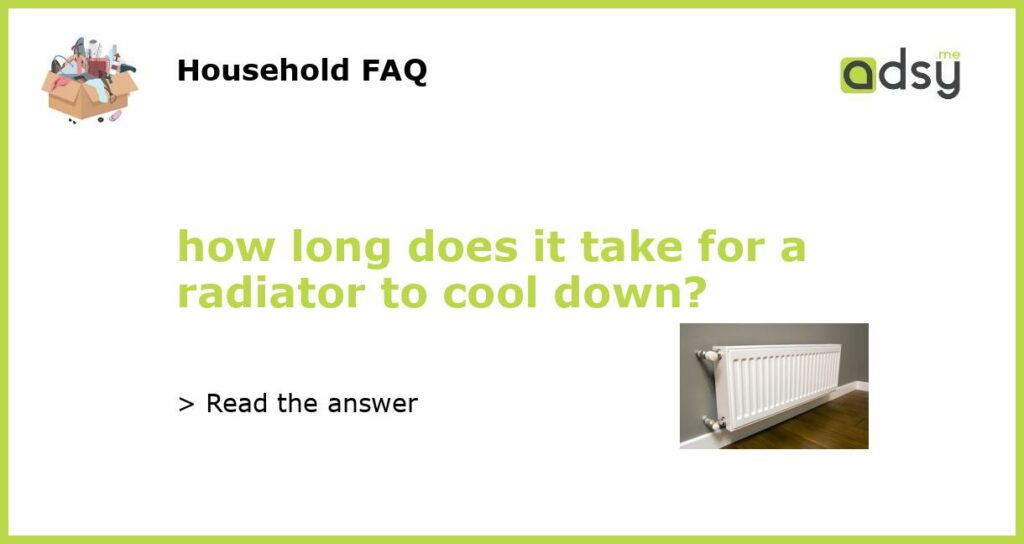How Long Does It Take for a Radiator to Cool Down?
When it comes to cooling down a radiator, there are several factors that can affect the amount of time it takes. From the type of radiator to the temperature of the room, these variables can play a significant role in how long it takes for the radiator to cool down. In this article, we will explore these factors and provide an estimate of the time it typically takes for a radiator to cool down.
Type of Radiator
The type of radiator you have installed in your home can have a significant impact on how quickly it cools down. There are two main types of radiators: cast iron and steel panel. Cast iron radiators are known for their high thermal mass, which means they retain heat for longer periods of time. As a result, cast iron radiators can take longer to cool down compared to steel panel radiators, which typically have a lower thermal mass. On average, it can take anywhere from 1 to 3 hours for a cast iron radiator to cool down, while a steel panel radiator may cool down in as little as 30 minutes to 1 hour.
The temperature of the room where the radiator is located can also affect the cooling time. If the room is warm, it will take longer for the radiator to cool down as it will have to work harder to dissipate the heat. On the other hand, if the room is already cool, the radiator will cool down more quickly. A general rule of thumb is that it can take approximately 1 hour for a radiator to cool down for every 10 degrees Fahrenheit reduction in room temperature. Therefore, if the room temperature is 70 degrees Fahrenheit and you want to cool it down to 60 degrees Fahrenheit, it may take around 1 hour for the radiator to reach the desired temperature.
Radiator Efficiency
The efficiency of the radiator can also impact how quickly it cools down. If the radiator is functioning optimally and has good heat transfer capabilities, it will cool down more quickly. On the other hand, if the radiator is old or damaged, it may take longer for it to cool down. Regular maintenance and cleaning can help improve the efficiency of the radiator and ensure optimal cooling performance. It is recommended to have your radiator professionally inspected and serviced on a regular basis to ensure it is working efficiently.
Weather and Insulation
The weather and insulation of your home can also affect how long it takes for a radiator to cool down. In colder weather, the radiator may take longer to cool down as it will have to work harder to counteract the lower outdoor temperature. Additionally, poor insulation in your home can lead to heat loss, which can also impact the cooling time of the radiator. By improving the insulation in your home, you can help reduce heat loss and improve the overall efficiency of your radiator.
In conclusion, the time it takes for a radiator to cool down can vary depending on the type of radiator, the room temperature, the radiator efficiency, and the weather and insulation of your home. On average, it can take anywhere from 30 minutes to 3 hours for a radiator to cool down. It is important to note that these are general estimates and individual circumstances may vary. If you have concerns about the cooling time of your radiator, it is recommended to consult with a professional heating technician for further assistance.






